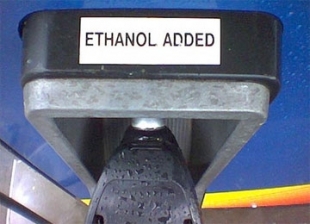Renewable Fuels Standard Could Gobble Up America's Entire Corn Crop

The government must stop mandating ethanol production, Mark Perry notes. It drives up prices and, unless something is done, in the not-so-distant future the mandate may have our entire American corn crop diverted to making ethanol:
Corn ethanol is clearly inferior to gasoline as a fuel source for automobiles. Despite a 51-cent-per-gallon tax credit to companies that blend ethanol into gasoline, ethanol costs about 70 cents a gallon more than gasoline on an energy-equivalent basis. Instead of helping consumers, ethanol provides 27% lower fuel economy than gasoline.
Realistically, you have to burn a lot more ethanol-based fuel to create the same amount of energy to power your car, which has unnecessarily driven up the cost of operating a vehicle. And there are serious long-term adverse environmental implications from using corn ethanol. Growing corn to make fuel requires significant amounts of fertilizer and pesticides that pollute the soil, underground aquifers and waterways. The National Research Council has determined that corn ethanol uses significantly more water in its production cycle than gasoline.
So far, neither the Administration nor Congress has confronted the fact that 40% of the U.S. corn crop is used to produce ethanol, which has increased retail food prices and strained family budgets in their never-ending struggle to put food on the table.
The first step to adopting a more sensible ethanol policy is to halt the production of E15, since it is caustic and can ruin car engines, while doing nothing to moderate gasoline prices or improve the environment. The Renewable Fuel Standard requires escalating the production of ethanol, ramping up from 13 billion gallons this year to 36 billion gallons by 2022. Unless cellulosic ethanol becomes available, that level of production would require switching the nation’s entire corn crop to the production of corn ethanol.
That would be a recipe for disaster. Congress needs to roll back its mandate. It’s time to stop throwing our tax dollars at ethanol.
The problem, of course, is that ethanol is great for the agriculture industry. The artificial demand for ethanol crops the government is creating means higher crop prices for farmers.
Which is what’s tough about the food markets. Higher food prices aren’t great for the rest of us, but they’re good for farmers.







